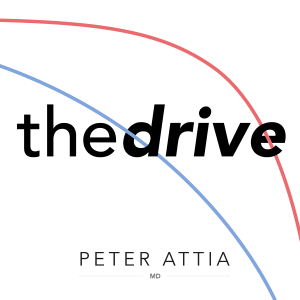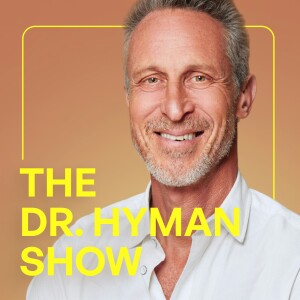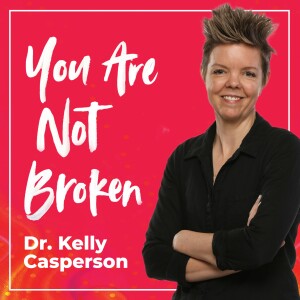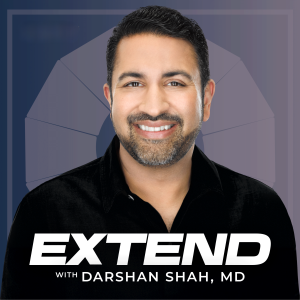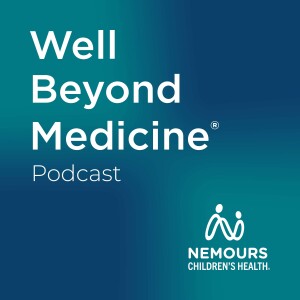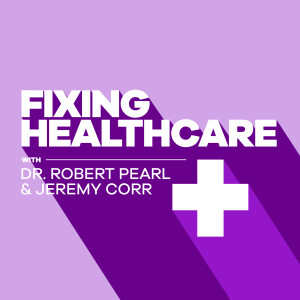

Fixing Healthcare Podcast
https://www.fixinghealthcarepodcast.com/feed/podcastEpisode List

FHC #184: Dr. Uché Blackstock on racism, sexism and fixing medicine
In the first episode of Fixing Healthcare’s 11th season, cohosts Dr. Robert Pearl and Jeremy Corr speak with Dr. Uché Blackstock, an emergency physician, bestselling author and health equity expert. This season turns the spotlight on voices from social media, offering insights into what patients actually want from the U.S. healthcare system. Dr. Blackstock (whose online following is both massive and deeply engaged) shares the concerns she hears most often: fears about rising insurance premiums, confusion around preventive screenings and frustration with a system that feels inaccessible, dismissive or even dangerous for many women and people of color. Dr. Blackstock is the founder and CEO of Advancing Health Equity and author of Legacy: A Black Physician Reckons with Racism in Medicine, a memoir that blends personal history with data and policy analysis. In her conversation with Dr. Pearl and Jeremy Corr, she highlights several ways the U.S. healthcare system must change to better serve all patients: Bridging The Access Gap Dr. Blackstock discusses the urgent need to expand access to preventive care, particularly for groups at higher risk of being overlooked or underserved. She emphasizes the role of health literacy, equitable coverage, and primary care investment in closing these gaps, especially in communities where hospitals and clinics remain out of reach. Rebuilding Trust From maternal mortality to COVID response, Dr. Blackstock explains how structural racism, sexist bias and historical injustice continue to shape patient outcomes. She urges clinicians and institutions to take these realities seriously, listen more closely to patients’ concerns and build relationships rooted in dignity and respect. Rethinking The System Itself Rather than settle for incremental fixes, Dr. Blackstock calls for a complete overhaul of American medicine. She argues we must reduce administrative waste, center community-based care, and treat universal access to healthcare as a moral and civic imperative. She believes Gen Z, with its strong values, optimism and technological fluency, may be the generation to lead that change. Throughout the episode, the conversation returns to a central question: What does it mean to be seen, heard and cared for in today’s healthcare system. And how can we ensure everyone receives that kind of care? Tune in for the full interview and join the conversation on social media. * * * Fixing Healthcare is a co-production of Dr. Robert Pearl and Jeremy Corr. Subscribe to the show via Apple, Spotify, Stitcher or wherever you find podcasts. Join the conversation or suggest a guest by following the show on Twitter and LinkedIn. The post FHC #184: Dr. Uché Blackstock on racism, sexism and fixing medicine appeared first on Fixing Healthcare.

FHC #183: Will GenAI replace docs? How should medical schools respond?
In this Diving Deep episode of Fixing Healthcare, cohosts Dr. Robert Pearl and Jeremy Corr tackle two of the most pressing questions in healthcare today, each focused on the future of medical practice in the era of generative AI. First, the hosts explore the controversial question: Will AI replace doctors? Dr. Pearl argues that, despite recent advances in AI that now outperform physicians in a growing number of diagnostic tasks, the answer is “no.” He explains why the healthcare system’s worsening physician shortage, its rising costs and patients’ enduring need for human connection all point to a future in which doctors remain essential. However, he warns that clinicians won’t be immune to the pressures GenAI brings. If the technology is controlled by insurers or private equity firms, it will likely be used to speed up visits and reduce costs, not improve care. To avoid that outcome, Pearl urges physicians to lead AI’s integration into medicine, organizing into high-performing groups and shaping how the tools are used. Otherwise, he cautions, GenAI won’t replace doctors. But it will make their jobs miserable. Later in the episode, the conversation turns to medical education. Pearl argues that U.S. medical schools are falling dangerously behind in preparing students for the AI revolution. While colleges and universities across the country are rapidly integrating generative AI into undergraduate curricula, most medical schools still rely on outdated teaching methods that emphasize memorization rather than application of information in clinical practice. Pearl calls for an urgent overhaul of faculty training and curricular design, encouraging hands-on exercises where students use GenAI as a clinical partner. With this foundation, students can engage in diagnostic reasoning, design care plans, and collaborate with AI tools to improve patient outcomes. Without these changes, he warns, tomorrow’s physicians may be ill-equipped to lead in a rapidly evolving healthcare landscape. Together, these topics speak to some of the greatest fears – and greatest opportunities – in the medical profession today. Listen to the episode to hear the full conversation and decide for yourself. HELPFUL LINKS GenAI Won’t Replace Doctors, But It Could Make Them Miserable (Forbes) In The AI Revolution, Medical Schools Are Falling Behind U.S. Colleges (Forbes) Monthly Musings on American Healthcare (Robert Pearl’s newsletter) * * * Dr. Robert Pearl is the author of “ChatGPT, MD: How AI-Empowered Patients & Doctors Can Take Back Control of American Medicine.” All profits from the book go to Doctors Without Borders. Fixing Healthcare is a co-production of Dr. Robert Pearl and Jeremy Corr. Subscribe to the show via Apple, Spotify or wherever you find podcasts. Join the conversation or suggest a guest by following the show on Twitter and LinkedIn. The post FHC #183: Will GenAI replace docs? How should medical schools respond? appeared first on Fixing Healthcare.

MTT #96: Cancer confusion, obesity clarity & a $3M drug failure
In this episode of Medicine: The Truth, co-hosts Dr. Robert Pearl and Jeremy Corr examine a wide range of healthcare headlines. From the Supreme Court’s ruling on preventive care to heat-related deaths, experimental diabetes treatments and the continued unaffordability of life-saving drugs, this episode focuses on biggest stories in medicine today. It opens with a breakdown of the Supreme Court’s recent 6–3 decision on pre-exposure prophylaxis (PrEP) for HIV. While the ruling preserves access to services recommended by the U.S. Preventive Services Task Force, Pearl warns that it introduces new risks. “When politics or finances enter the healthcare world, clinical outcomes suffer,” says Pearl. He draws parallels to the ousting of experts on the CDC’s vaccine advisory panel and highlights the danger of eroding scientific independence. Pearl then turns to a longstanding pain point in American healthcare: prior authorization. While insurer companies claim this process guarantees safe, necessary care, studies show it often delays treatment or leads patients to abandon care altogether. Despite new promises from more than 50 insurers to streamline their processes by 2027, Pearl offers words of caution. “Although this pledge sounds like a major commitment, clinicians remain doubtful Clinicians remain doubtful … And, of course, 2027 is two years away.” Other key topics discussed in this episode include: Statin underuse: Research shows that prescribing statins to all eligible Americans could prevent 39,000 deaths and 165,000 major cardiac events annually, saving up to $25 billion a year. CT scan overuse: New data show that frequent surveillance scans for cancer recurrence do not improve survival and may lead to physical, psychological and financial harm. Cancer screening clarity: Only four cancers (breast, lung, cervical and colorectal) have strong evidence supporting screening. For the rest, benefits remain unproven or may be outweighed by risks. Colon cancer detection: FIT tests are as effective as colonoscopy in low-risk patients, especially those ages 40–49. Yet screening rates remain far too low. Heat-related health threats: Climate-driven “heat domes” pose rising risks to children, the elderly and patients with chronic disease. New HIV drug dilemma: The FDA approved an injectable PrEP option with a near-perfect success rate. However, at a staggering $28,000+ annual cost, it may remain out of reach for most. FDA under scrutiny: Accelerated approvals are allowing high-cost drugs to enter the market despite safety concerns. Pearl discusses the recent deaths of two children treated with a $3.2 million drug for Duchenne muscular dystrophy. Experimental type 1 diabetes cure: A new stem cell therapy enabled 10 out of 12 patients to stop insulin injections. But lifelong immunosuppression and likely high costs may limit uptake. Autism breakthrough: New genetic analysis identifies four distinct ASD subtypes, helping pave the way for earlier diagnosis and personalized support strategies. Alarming pediatric trends: Childhood obesity and mental health issues have risen sharply in the last 17 years. Climate change is also driving a spike in tick-related illnesses in children. Obesity science simplified: A global study confirms it’s not lack of exercise driving obesity—it’s excess calories, particularly from ultra-processed, high-fat foods. The episode closes with a hard truth: U.S. healthcare spending is expected to exceed 20% of GDP by 2033. “Despite spending more, we’re not seeing improvements in outcomes,” Pearl says. He promises to revisit this issue in a future episode of Diving Deep. * * * Dr. Robert Pearl is the author of the new book “ChatGPT, MD: How AI-Empowered Patients & Doctors Can Take Back Control of American Medicine” about the impact of AI on the future of medicine. All profits from the book go to Doctors Without Borders. Fixing Healthcare is a co-production of Dr. Robert Pearl and Jeremy Corr. Subscribe to the show via Apple, Spotify, Stitcher or wherever you find podcasts. Join the conversation or suggest a guest by following the show on Twitter and LinkedIn The post MTT #96: Cancer confusion, obesity clarity & a $3M drug failure appeared first on Fixing Healthcare.

FHC #182: How GenAI, telemedicine and AI assistants will reshape medicine
In a special episode of Fixing Healthcare, Jeremy Corr turns the mic once more to cohost Dr. Robert Pearl, inviting him to reflect on Season 10, marking the duo’s most ambitious deep-dive into the technologies transforming American medicine. Over the past nine episodes, Corr and Pearl welcomed leading thinkers in health tech, including high-profile executives from Microsoft, Google, Oracle and Nvidia; the CEOs of Zocdoc and Hippocratic AI; pioneers of generative AI like investor Vinod Khosla; and renowned physician-leaders like Drs. Eric Topol and Maria Ansari. This week, Corr and Pearl offer listeners a wide-angle view of what they learned … and what comes next. Pearl begins by identifying four major “eras” of healthcare technology. The first was defined by anatomic understanding and miracle drugs. The second brought powerful machines like CT and MRI. The third saw the arrival of EHRs and the internet, technologies that failed to meet expectations. The fourth era, he says, began on “November 30th of 2022, with the release of OpenAI’s ChatGPT.” Since then, Pearl notes, generative AI has at least doubled in power annually. “By the time the current cohort of medical students complete their training,” he says, “generative AI will be at least 30 times more powerful than today. That’s the equivalent of your car going as fast as an airplane.” Corr asks Pearl to walk through what stood out most from the season’s interviews. Pearl highlights Dr. Topol’s focus on “precision preventive care,” David Feinberg’s vision of AI as a personal assistant, and Vinod Khosla’s belief that “AI won’t replace 80% of doctors, but it will replace 80% of what doctors do.” Others predicted tech-enabled call centers, hospital-at-home programs, and smarter EHRs that anticipate a clinician’s needs. Before the episode ends, Corr asks Pearl to summarize his own top three technologies for the next five to 10 years. Pearl’s answer mirrors — but also expands upon — his earlier appearance in episode #170. Here are the three innovations he believes will have the greatest impact: Large language models (LLMs): Pearl believes tools like ChatGPT, Gemini and Claude will soon be able to monitor patients with chronic illnesses in real time, helping them identify when medication adjustments or clinical interventions are needed (without requiring an in-person visit). AI-enabled telemedicine: When paired with generative AI, telemedicine will evolve from a one-to-one model to a one-to-many approach. Pearl envisions a future in which doctors can oversee and manage care for dozens — or even hundreds — of discharged patients simultaneously, responding quickly to those who need the most attention. AI-powered assistants: Tools like DeepSeek will spark a new generation of digital healthcare agents trained on real clinician–patient interactions. These assistants will handle triage, chronic disease management and home monitoring, making expert-level care more accessible, scalable and affordable than ever before. Pearl ends with a bold forecast: “I’m convinced that over the next five to 10 years, the combination of dedicated clinicians and empowered patients and generative AI technology will achieve clinical outcomes that are exponentially better than what any of the three could achieve alone.” Click play to hear this wide-ranging wrap-up to Season 10, including predictions for medicine’s future and a call to action for patients, clinicians and tech innovators alike. * * * Fixing Healthcare is a co-production of Dr. Robert Pearl and Jeremy Corr. Subscribe to the show via Apple, Spotify, Stitcher or wherever you find podcasts. Join the conversation or suggest a guest by following the show on Twitter and LinkedIn. The post FHC #182: How GenAI, telemedicine and AI assistants will reshape medicine appeared first on Fixing Healthcare.

FHC #181: When the doctor becomes the patient
In this introspective episode of Unfiltered, cohosts Dr. Robert Pearl and Jeremy Corr sit down once again with cardiologist Dr. Jonathan Fisher to explore the emotional and psychological dimensions of medical treatment — this time from the perspective of a physician as a patient. Prompted by Dr. Fisher’s own recent orthopedic surgery, the discussion examines the complexities and uncertainties patients face when deciding on medical interventions. Fisher candidly shares his reflections on the importance of setting clear expectations, the role of empathy in patient care, and the profound isolation and vulnerability experienced during his own recovery. The episode expands into a broader dialogue about hope, optimism and honesty in medical care, particularly in oncology. Pearl and Fisher debate the balance between providing realistic expectations and maintaining patient optimism, highlighting how the right mindset can significantly influence healing and recovery. Finally, in response to a listener’s thoughtful question, the hosts explore how medical specialties metaphorically influence a physician’s worldview and approach to patient care, underscoring the profound interplay between personal experience and professional practice. For more candid, unfiltered conversation, listen to the full episode and explore these related resources: ‘Just One Heart’ (Jonathan Fisher’s newest book) ‘ChatGPT, MD’ (Robert Pearl’s newest book) Monthly Musings on American Healthcare (Robert Pearl’s newsletter) * * * Fixing Healthcare is a co-production of Dr. Robert Pearl and Jeremy Corr. Subscribe to the show via Apple Podcasts or wherever you find podcasts. Join the conversation or suggest a guest by following the show on Twitter and LinkedIn. The post FHC #181: When the doctor becomes the patient appeared first on Fixing Healthcare.
Create Your Podcast In Minutes
- Full-featured podcast site
- Unlimited storage and bandwidth
- Comprehensive podcast stats
- Distribute to Apple Podcasts, Spotify, and more
- Make money with your podcast



